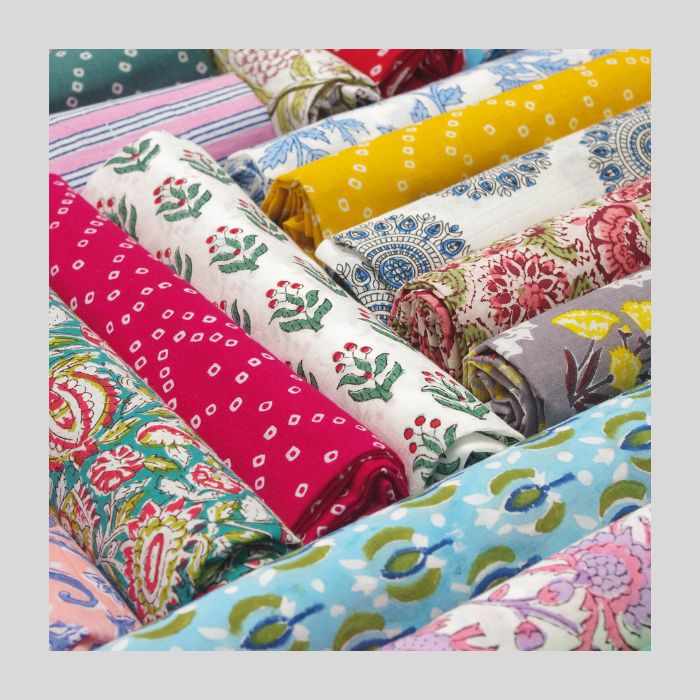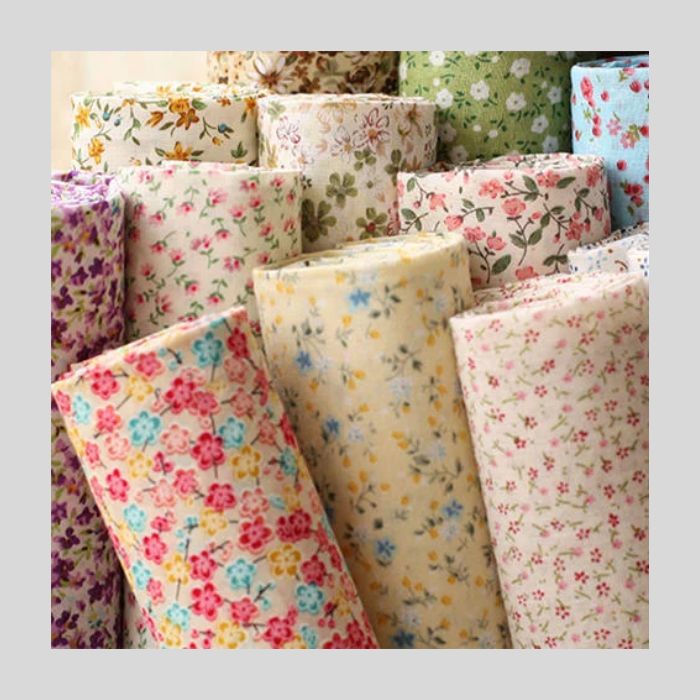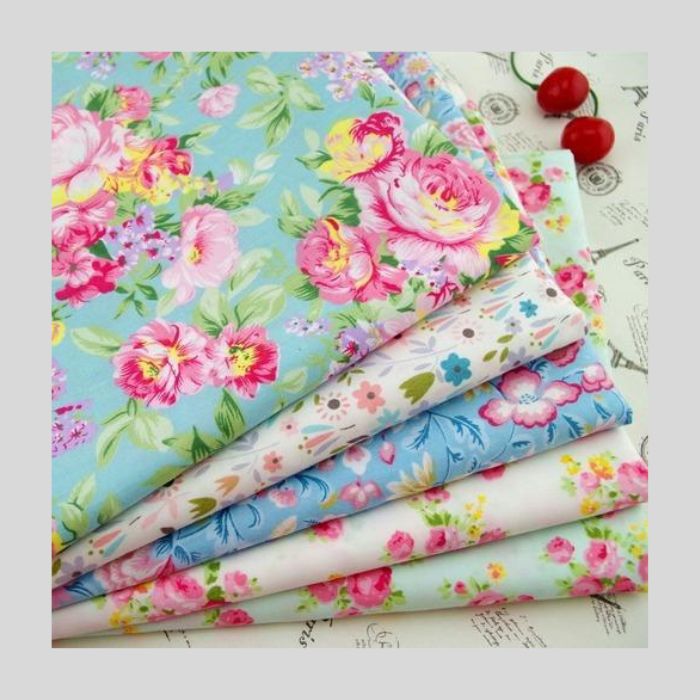Unravel the rich tapestry of Indian textiles with us as we bring you an inside look at the top Indian fabric suppliers. Discover the blend of traditional craftsmanship and modern manufacturing that creates incredible, high-quality textiles.
1. Interesting facts about Indian fabric suppliers
Certainly, here are some interesting facts about Indian fabric suppliers:
- Historical Significance: India has a rich history of textile production dating back thousands of years. The Indus Valley Civilization, one of the world’s oldest urban civilizations, is believed to have had a flourishing textile industry.
- Textile Exports and Economy: The textile industry is a vital part of India’s economy, providing employment to millions of people. Indian fabric suppliers contribute significantly to the country’s export revenue.
- Cultural Heritage: Different regions of India are known for their distinct textile traditions. For example, Banaras is famous for its luxurious silk sarees, while Jaipur is renowned for its vibrant block-printed fabrics.
- Global Export: India is one of the largest exporters of textiles and clothing in the world. Its fabrics are in demand across the globe for their quality, design, and affordability.
- Global Fashion Influence: Indian fabrics, especially handwoven textiles and embroideries, have a significant influence on international fashion runways.
- Innovation: Alongside traditional fabrics, Indian fabric suppliers are also innovating with new blends, finishes, and designs to meet contemporary demands.
- Government Initiatives: The Indian government has launched various initiatives to promote Indian fabric suppliers, improve infrastructure, and support skill development among artisans.
These facts highlight the rich and dynamic landscape of Indian fabric suppliers, reflecting the country’s cultural heritage, economic impact, and contribution to the global textile industry.

Interesting facts about Indian fabric suppliers
2. Pros and cons of working with Indian fabric suppliers
Discover the intricacies of the Indian fabric industry in this part. Unravel the benefits and drawbacks of collaborating with Indian fabric suppliers. Navigate the colorful landscape of one of the world’s largest textile markets. Step into this insightful journey that aims to help your business make informed decisions.
2.1. Pros of working with Indian fabric suppliers
Working with Indian fabric suppliers offers several advantages due to the country’s rich textile heritage, diverse range of fabrics, and competitive pricing. Here are some pros of collaborating with Indian fabric suppliers:
- Wide Variety of Fabrics: India is known for producing a diverse range of fabrics, from luxurious silks and intricate embroideries to eco-friendly organic textiles and technical fabrics. This diversity allows you to find fabrics that suit your specific needs and preferences.
- Competitive Pricing: Indian fabric suppliers often offer competitive pricing compared to suppliers from other countries. This can be especially advantageous if you’re looking to source high-quality fabrics at a reasonable cost.
- Traditional and Modern Blends: Indian suppliers seamlessly blend traditional designs and techniques with modern trends, offering fabrics that appeal to both classic and contemporary markets.
- Sustainable Practices: Many Indian fabric suppliers are embracing sustainable practices, using organic fibers, natural dyes, and eco-friendly processes. This aligns with the growing demand for environmentally conscious products.
- Cultural Influence: Indian fabrics often carry cultural significance and can add an element of uniqueness to your products. They can tell stories and resonate with consumers who appreciate the cultural value of textiles.
- Global Export Experience: Due to India’s status as a major textile exporter, Indian fabric suppliers are experienced in handling international orders, ensuring smoother logistics and communication.
- Flexible Order Quantities: Depending on the supplier, you might find flexibility in order quantities. This can be beneficial if you’re testing new products or want to start with smaller quantities.
Remember that while there are numerous advantages, working with any supplier requires thorough research, communication, and due diligence to ensure a successful collaboration.
2.2. Cons of working with Indian fabric suppliers
While there are many benefits to working with Indian fabric suppliers, there are also some potential challenges that you should be aware of. Here are some cons to consider when collaborating with Indian fabric suppliers:
- Communication Challenges: Language barriers and cultural differences can sometimes lead to misunderstandings in communication. It’s important to establish clear and effective communication channels to prevent errors or delays.
- Quality Control: Ensuring consistent quality can be a challenge, especially if you’re dealing with multiple Indian fabric suppliers or complex orders. Variations in dye lots, color accuracy, and finishing processes may arise.
- Lead Times and Delays: Production lead times might be longer than anticipated, and delays can occur due to factors such as seasonal demand, raw material availability, or unexpected disruptions.
- Logistics and Shipping: International shipping can sometimes be complex, with potential issues related to customs, duties, and shipping costs. You’ll need to carefully plan logistics and be prepared for any unexpected expenses.
- Minimum Order Quantities (MOQs): Some Indian fabric suppliers, especially those focused on exports, may have high MOQs, which might not align with your business needs or budget.
- Cultural Nuances: Understanding and respecting cultural nuances in business practices and negotiations is important to building strong relationships with Indian fabric suppliers. Misunderstandings in this regard can affect collaboration.
- Infrastructure Variability: While India has a well-developed textile industry, there can be variations in infrastructure, technological capabilities, and production standards among different suppliers.
- Cultural and Religious Holidays: India observes a variety of cultural and religious holidays, during which business activities may slow down or come to a halt. This can impact production and communication schedules.
Despite these potential challenges, many businesses successfully collaborate with Indian fabric suppliers by addressing these issues proactively and building strong partnerships based on effective communication and mutual understanding.

Pros and cons of working with Indian fabric suppliers
3. Tips for working with Indian fabric suppliers
Working with Indian fabric suppliers can be a rewarding endeavor if approached thoughtfully. To help you navigate the process more smoothly, here are some tips:
- Thorough Research: Conduct thorough research to identify reputable Indian fabric suppliers or the top Indian wholesale clothing suppliers. Look for reviews, testimonials, and references from other businesses that have worked with them.
- Clear Communication: Establish clear lines of communication from the outset. Clearly articulate your requirements, expectations, and specifications to minimize misunderstandings.
- Cultural Sensitivity: Be aware of cultural differences and approach interactions with respect. Building a good working relationship often involves understanding and appreciating each other’s cultural norms.
- Specify Details: Clearly specify details such as fabric composition, color codes, patterns, sizes, and finishing techniques in your orders to avoid any ambiguity.
- Contracts and Agreements: Have comprehensive contracts that outline terms, conditions, pricing, delivery schedules, quality standards, and dispute resolution procedures. A legal document provides clarity and protection.
- Regular Communication: Maintain regular communication with Indian fabric suppliers or the top Indian wholesale clothing suppliers throughout the production process. This helps address any potential issues early on and keeps you updated on progress.
- Negotiate Payment Terms: Discuss payment terms and methods that work for both parties. Be cautious of large upfront payments and ensure they align with industry standards.
- Plan for Cultural Holidays: Be aware of Indian cultural holidays, as they may impact production and communication schedules. Plan accordingly.
- Be Patient: Working with Indian fabric suppliers can sometimes involve delays or unexpected challenges. Patience and flexibility are key to maintaining a positive working relationship.
- Build Trust Gradually: Establishing trust takes time. Start with smaller orders to assess the supplier’s reliability and quality before committing to larger quantities.
- Feedback Loop: Provide feedback to Indian fabric suppliers, both positive and constructive. This helps them improve and refine their processes based on your requirements.
By approaching your collaboration with Indian fabric suppliers strategically and proactively, you can navigate potential challenges and build successful, long-lasting partnerships.

Tips for working with Indian fabric suppliers
4. Top recommended Indian fabric suppliers
In this part, I will share my recommendations and provide valuable insights into each supplier’s offerings.
4.1. Arvind Limited: Top recommended Indian fabric suppliers
Arvind Limited is a leading Indian fabric supplier known for its extensive range of fabrics. They offer a wide variety of options, including cotton, silk, linen, and synthetic fabrics.
Their fabrics are sourced from trusted manufacturers and undergo rigorous quality checks to ensure customer satisfaction. With its vast collection, Arvind Limited caters to the needs of both small-scale and large-scale businesses.
4.2. Welspun India: Top recommended Indian fabric suppliers
Welspun India is another top Indian fabric supplier that has gained a reputation for its premium quality fabrics.
They have a strong focus on sustainability and ethical sourcing, ensuring that their fabrics are produced in an environmentally friendly and socially responsible manner.
4.3. Raymond Limited: Top recommended Indian fabric suppliers
Raymond Limited is a renowned Indian fabric supplier known for its innovative designs and high-quality materials. They collaborate with talented designers and manufacturers to bring unique and trendsetting fabrics to the market.
5. Vinaz Garment: A great alternative to Indian fabric suppliers
Vinaz Garment is a top clothing fabric supplier in Vietnam, with a focus on producing high-quality apparel products directly for both retail and wholesale customers.
- The company, founded in 1967 as a small textile factory, has grown into one of the biggest and most reputable Vietnam clothing manufacturers, with over 50 years of experience in the industry.
- Vinaz Garment has more than 10 modern factories with skilled workers and up-to-date production lines, and is committed to producing sustainable, durable, and affordable products.
If you are looking for reliable and high-quality clothing products, Vinaz Garment may be a great option to consider!
Vietnam has been a significant player in the global textile and apparel industry. The country is known for its robust manufacturing capabilities and competitive prices. See more about Vietnam fabric suppliers by checking here https://vinazgarment.com/top-vietnam-fabric-suppliers-for-quality-textiles/